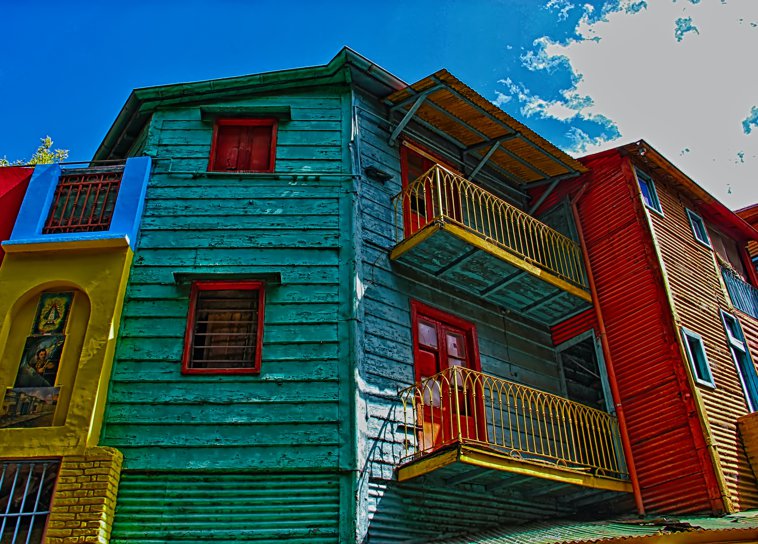Lunfardo
Questions This Article Answers
What is lunfardo?
Where is lunfardo spoken?
What is cocoliche?
What does guarda mean?
What does quilombo mean?
What does trucho mean?
What does ñoba mean?
What does finoli mean?

What is Lunfardo?
The puertos(ports) located on both banks of the Río de la Plata served as an entry point for the millions of immigrants who came into Argentina(Argentina) and Uruguay(Uruguay), especially at the end of the 19th century and beginning of the 20th century. The populations of the capital cities in those countries grew exponentially and so did the vocabulary used in everyday life.
Español rioplatense(River Plate Spanish), the Spanish spoken in the Río de la Plata area, borrowed and adapted words of diverse languages and dialects, including Italian, Genovese, Lombard, Neapolitan, Occitan, Portuguese, French, Galician, Romani, and African and Native American languages.
This argot was named lunfardo, which is believed to derive from the word lombardo(Lombard). Nowadays, lunfardo is mainly known as the name of the slang spoken in Buenos Aires(Buenos Aires).
Originally, lunfardo was mostly used by people of lower classes, criminals, and inmates. The lexicon was incorporated into tango(tango), and when tango gained popularity, lunfardo also spread among the general population.
River Plate Spanish
Learn more about español rioplatense in the following article:
The Predecessor: Cocoliche
Cocoliche(Cocoliche) was a pidgin spoken by the Italian immigrants that arrived in the River Plate area in the late 19th century and early 20th century. Cocoliche consisted of words from diverse Italian dialects mixed with Spanish. Although this pidgin was mostly used by first-generation immigrants who were trying to assimilate to the local culture and language, many cocoliche words continued to be used and became part of lunfardo.
Let's see examples of cocoliche. Some of the words were borrowed from Italian dialects, while others have been adapted to Spanish phonology and spelling. Most of the following words made their way into lunfardo and are still used in everyday speech today.
| examples |
|---|
Lunfardo Lexicon
Now that you know what lunfardo is and its origins, let's learn some lunfardo words!
| examples |
|---|
Vesre
Vesre(Vesre) is a type of back slang, and it is considered to be part of lunfardo. It consists of changing the order of the syllables of a word. For example, the word pelo(hair) becomes lope.
| examples |
|---|
Adding Italian-Sounding Suffixes
River Plate Spanish speakers may playfully add suffixes to words, which can make the vocabulary hard to understand. Many of these suffixes are evocative of Italian words or last names, for example -eli, -engue, -lli, -ola, -ongo, and -ri, among others.
| examples |
|---|
Use of Similar-Sounding Words
River Plate Spanish speakers may also playfully replace a word with another one that sounds similar or has many sounds in common, keeping the meaning of the first one.
| Word | Can be replaced with |
|---|---|
| corto(short) | cortina(curtain) |
| lento(slow) | lenteja(lentil) |
| traje(suit) | tragedia(tragedy) |
| examples |
|---|
Learn more about Spanish grammar and regional varieties with these articles:














